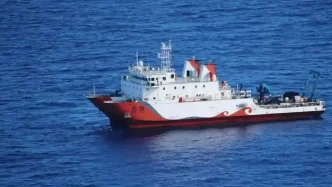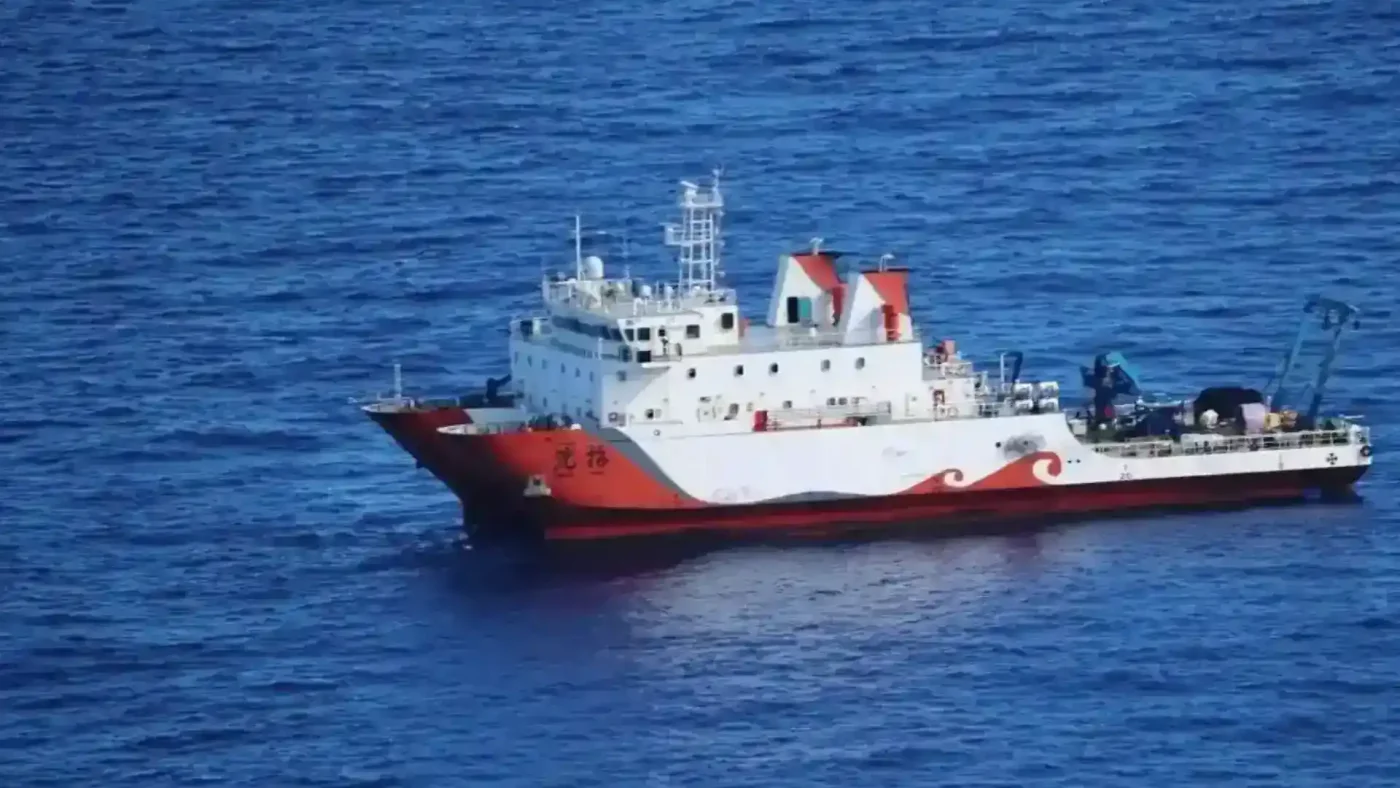Philippine President Ferdinand Marcos Jr. is set to prioritize the completion of a long-awaited Code of Conduct (COC) for the South China Sea during the 46th Asean Summit in Kuala Lumpur, Malaysia, on May 26 and 27, 2025. With tensions persisting in the disputed waterway, Marcos aims to finalize the agreement by 2026, when the Philippines assumes the chairmanship of the Association of Southeast Asian Nations (Asean) and hosts the bloc’s high-level meetings. His agenda also includes reinforcing Philippine sovereignty in the West Philippine Sea, a portion of the South China Sea within Manila’s exclusive economic zone, amid ongoing disputes with China and other regional claimants.
Driving the Code of Conduct Forward
At the heart of Marcos’s mission in Kuala Lumpur is the push for a binding COC to manage tensions in the South China Sea, a resource-rich region claimed in part by the Philippines, Vietnam, Brunei, Indonesia, Malaysia, and Taiwan, and almost entirely by China. The COC, a framework first proposed over two decades ago, seeks to prevent conflicts in one of the world’s most contested maritime zones. Speaking at a media briefing in Manila, Foreign Deputy Assistant Secretary Dominic Xavier Imperial emphasized the President’s commitment to concluding the agreement by 2026. “The President certainly will push for it. He will raise this with the leaders of Asean” said Imperial, highlighting a renewed urgency following a 2023 agreement among Asean foreign ministers to fast-track negotiations.
The South China Sea remains a geopolitical flashpoint, with frequent incidents involving Chinese coast guard vessels and Philippine ships near disputed reefs. Manila has repeatedly accused Beijing of aggressive tactics, including the use of water cannons and dangerous maneuvers, which have escalated tensions in recent years. The 2016 arbitral award, issued under the United Nations Convention on the Law of the Sea (UNCLOS), invalidated China’s expansive claims in the region, a ruling that Marcos is expected to underscore during the summit as a cornerstone of the Philippines’ position.
Balancing Sovereignty and Regional Stability
Beyond the COC, Marcos will advocate for Philippine sovereignty, sovereign rights, and jurisdiction in the West Philippine Sea, aligning with international law and the 2016 ruling. Imperial noted that the President would prioritize “deepening security and stability in the region” while fostering economic cooperation and engagement with Asean’s dialogue partners. This dual focus reflects Manila’s strategy of asserting its maritime claims while maintaining diplomatic ties within the bloc, where consensus on China-related issues has often proven elusive due to differing national interests.
The summit, hosted by Malaysia, offers a critical platform for Marcos to rally support among Asean leaders. With nine engagements scheduled, including the Asean Plenary Session, Retreat Session, and meetings with the Asean Business Advisory Council and Asean Youth, the Philippine leader will also participate in broader regional discussions. Key among these are the 16th Brunei Darussalam-Indonesia-Malaysia-Philippines East Asean Growth Area Summit, as well as trilateral summits involving the Gulf Cooperation Council (GCC) and China. These forums provide opportunities to address overlapping maritime claims and explore collaborative approaches to stability.
Global Challenges and Regional Responses
The Kuala Lumpur Summit will not be limited to maritime disputes. Leaders are expected to tackle a range of global issues affecting Southeast Asia, from the ongoing civil war and humanitarian crisis in Myanmar to the economic ripple effects of new US tariff policies under the second Trump administration. Imperial acknowledged regional concerns over the tariffs but stressed that Asean would avoid retaliatory measures, instead focusing on strengthening bilateral and multilateral engagements with Washington. “We are going to do something that will be beneficial to all Asean member-states” he said, reflecting Marcos’s support for a cooperative rather than confrontational approach.
On Myanmar, Marcos is anticipated to call for deeper Asean cooperation to push for a ceasefire in the junta-ruled nation, where conflict has raged since 2021. The country’s plight, compounded by a devastating earthquake on March 28, 2025, has drawn renewed attention, with Marcos recently discussing the humanitarian challenges with Malaysian Prime Minister Anwar Ibrahim during the latter’s visit to Manila earlier this month. The Philippine leader’s advocacy for peace in Myanmar aligns with Asean’s broader efforts to address internal crises while maintaining the bloc’s principle of non-interference.
Expanding Asean and Bilateral Ties
The summit agenda also includes the potential accession of Timor-Leste as a full Asean member, a move that the Philippines supports. Imperial confirmed that discussions would follow a roadmap for Timor-Leste’s integration, signaling Asean’s gradual expansion and the bloc’s commitment to inclusivity in Southeast Asia. “We are supportive of Timor-Leste joining Asean” he said, noting the importance of a structured approach to membership.
On the sidelines of the summit, Marcos is expected to hold bilateral meetings with leaders from Laos, Vietnam, and Kuwait, further strengthening Manila’s diplomatic and economic ties. While no trade agreements are slated for finalization in Kuala Lumpur, these discussions could lay the groundwork for future cooperation, particularly as the region navigates global economic uncertainties. The absence of immediate trade deals, however, underscores the summit’s focus on strategic and security priorities over commercial outcomes.
Outcome Documents and Long-Term Vision
At least 22 outcome documents are anticipated from the summit, covering a wide array of topics such as peace and security, maritime cooperation, economic integration, digital transformation, artificial intelligence, climate change, and people-to-people ties. Among the key declarations is the Kuala Lumpur Declaration on the Asean Vision 2045, which will outline the bloc’s long-term goals for regional development and unity. Joint statements from the Asean-GCC Summit and the Asean-GCC-China Summit are also expected, reflecting Asean’s growing engagement with external partners on shared challenges.
These documents will serve as a blueprint for Asean’s trajectory over the coming decades, balancing immediate concerns like maritime disputes with forward-looking initiatives in technology and sustainability. For the Philippines, the emphasis on maritime cooperation in these outcomes aligns closely with Marcos’s push for the COC, reinforcing Manila’s role as a key player in shaping regional maritime policy.
Navigating a Complex Geopolitical Landscape
The South China Sea dispute remains a defining issue for Asean, with China’s assertive actions casting a long shadow over regional stability. While the COC represents a potential pathway to de-escalation, its completion by 2026 is far from guaranteed. Negotiations have historically stalled due to disagreements over the code’s scope, enforceability, and whether it should be legally binding—a point of contention between Asean members and Beijing. If confirmed, a finalized COC could mark a historic step toward preventing major conflicts, though analysts caution that implementation and compliance will pose significant challenges.
For the Philippines, the stakes are particularly high. The West Philippine Sea is not only a matter of national sovereignty but also a vital economic zone, rich in fisheries and potential energy resources. Marcos’s insistence on upholding the 2016 arbitral award during the summit sends a clear message to both Asean partners and China that Manila remains steadfast in its legal and territorial claims. Yet, the President must also navigate the delicate balance of asserting these rights without fracturing Asean unity or provoking escalation with Beijing.
Looking Ahead
As the 46th Asean Summit unfolds in Kuala Lumpur, the region watches closely to see whether Marcos’s push for the Code of Conduct gains traction among fellow leaders. With the Philippines poised to take the Asean chair in 2026, the coming year will be a critical test of Manila’s ability to drive consensus on one of Southeast Asia’s most intractable issues. Beyond the South China Sea, the summit’s outcomes on Myanmar, US tariffs, and Timor-Leste’s accession will shape the bloc’s response to a rapidly changing geopolitical landscape, raising questions about Asean’s capacity to act as a unified force in turbulent times.
















